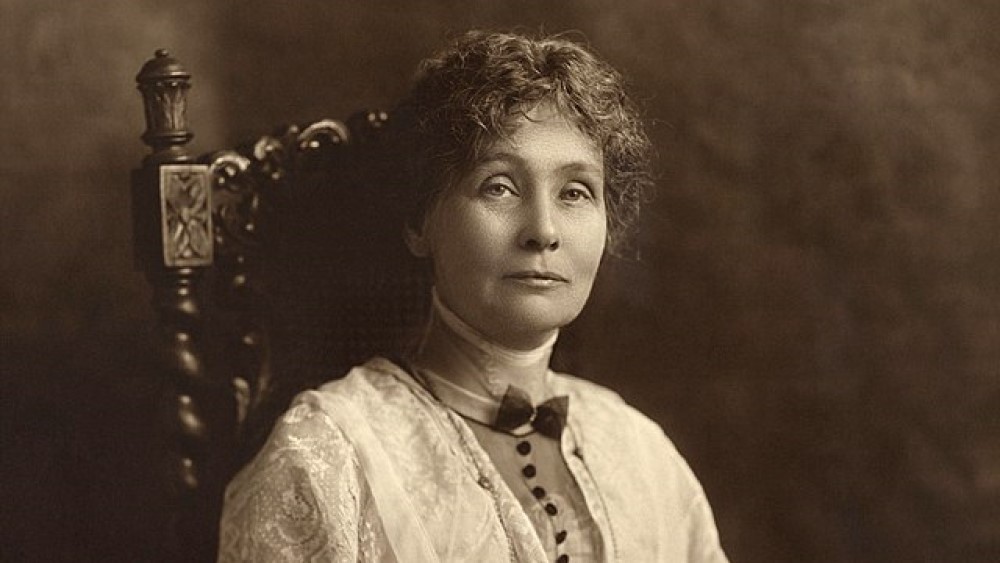
In the early 1870s, 14-year-old Emmeline Pankhurst (neé Goulden) attended a public meeting about women’s rights in Manchester, England. By the time it was over, her life’s calling had been established and she left “a conscious and confirmed suffragist.” Over the course of her lifetime, she came to be known as one of the most famous and influential British suffrage leaders. Her fearless embrace of protest actions in the early 1900s directly resulted in full voting enfranchisement for British women. She also pushed for equality for women in divorce and inheritance law.
Born on July 15, 1858 in Manchester, to politically active parents, Pankhurst was academically gifted but did not receive the same education as her brothers. Despite her parents' support for women's suffrage and the general advancement of women in society, they still believed that the educational skill set for girls was best used in homemaking.
At 15 years old, Pankhurst left home to attend the École Normale Supérieure in Paris, where she met and married a barrister. He was 24 years her senior–but fully supported women's suffrage and Emmeline's political work outside the home. In 1894, Pankhurst founded the Women’s Franchise League, which secured married women’s right to vote in elections for local offices, but not for the House of Commons. She also held a series of municipal offices in Manchester.
Increasingly frustrated with British political parties’ inaction on suffrage, Pankhurst founded the Women’s Social and Political Union (WSPU) in 1903 to take militant action. The group targeted any political party that did not work towards votes for women. Their motto was “deeds, not words.” She and her supporters took confrontational action and were frequently arrested for civil disobedience. They embarked on hunger strikes, endured violent force feedings and beatings, interrupted cabinet meetings and heckled politicians. Pankhurst was willing to starve herself to the point that authorities were forced to release her from custody–only to arrest her again when she recovered. She endured this cycle 12 times within a single year, serving a total of about 30 days.
Pankhurst and her daughter Christabel, who by then was also an established activist, called off the suffrage campaign with the outbreak of World War I. Pankhurst spent the time traveling to encourage the industrial mobilization of women. Upon her return to England, she was chosen as the Conservative candidate for an east London constituency but died before the election. The Representation of the People Act of 1928, establishing voting equality for men and women, was passed shortly after her death.
